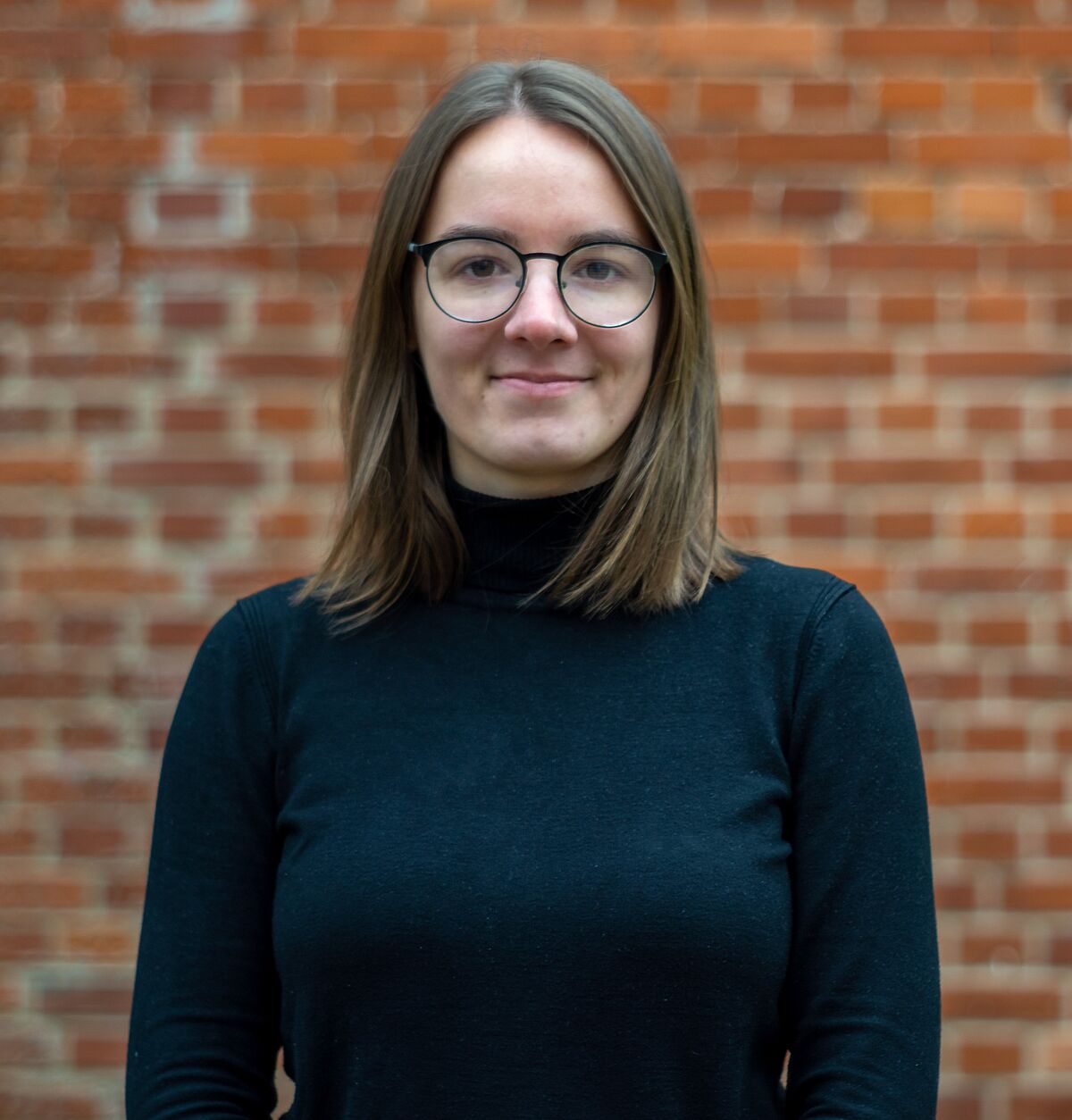Laura Tack, M.A.
Since April 2021 Doctoral Researcher at the International Research Training Group “Baltic Peripeties. Narratives of Reformations, Revolutions and Catastrophes” at the University of Greifswald.
2019 M.A. in History / German studies, University of Rostock and Københavns Universitet. Title of Master thesis: Darstellung und Wahrnehmung der Ostseesturmflut vom 10.02.1625 [Depiction and perception of the Baltic Sea storm flood on the 10.02.1625].
2015 B. A. in History / German studies, University of Rostock.
Natural Catastrophe as a Peripety: Change of Narratives and Perception of Historic Storm Floods in the Southwestern Baltic Sea
The PhD topic focuses on historic storm floods in the Baltic Sea area as events of great impact, covering the timespan from ca. 1300-1900. These kinds of events imply a twofold peripety. On one hand, the event itself poses a turning point for coastal societies, which were not used to tides and larger flood events. Here, the research will focus on how the floods were perceived and interpreted, as well as what narratives evolved out of their perception. Sources of interest to answer this research question are handwritten as well as printed: chronicles, reports and sermons, but also administrational documents, novels and poems, reflect how those affected by the flood thought about them.
On the other hand, the Baltic Sea storm floods also indicate a long-term peripety. The perception of nature changed over time not because of a number of isolated, unconnected events, but in the context of a centuries-long process, which culminated in what Reinhardt Koselleck called the ‘saddle period’ (German: Sattelzeit), a transitional era roughly between 1750 and 1850 that straddled the Early Modern and Modern periods. This period also marks a divide into a ‘before’ and ‘after’ concerning the human-nature-relationship. To gain insight regarding this research question, it is crucial to compare the events with each other and the traces they left in the sources, especially as the turning point of the human-nature-relationship is not as clear as it is for a single-event-peripety. Therefore, my research also aims at determining, as closely as possible, where exactly the perception of the environment changes. In this context, another presupposition is that older perceptions are not completely replaced by new ones but rather exist alongside them, which leads to a simultaneity of the non-simultaneous.
- “Die Spuren der Ostseesturmflut vom 10. Februar 1625 in Rostock,” Verein für Rostocker Geschichte, Rostock, October 25, 2023.
- “Die Naturkatastrophe als Peripetie. Wandel von Narrativen und Wahrnehmung der historischen Sturmfluten im südwestlichen Ostseeraum – Promotion in the making,” 9. DACH-Tagung der Studierenden der deutschsprachigen Skandinavistik, University of Greifswald, September 17-21, 2023.
- “Memory of Medieval and Early Modern Storm Surges in the South-Western Baltic Sea,” panel New Voices in Water History: Premodern Histories, 12th Biennial European Society for Environmental History (ESEH) Conference Mountains and Plains: Past, Present and Future Environmental and Climatic Entanglements, organised by the Institute of History and Oeschger Centre for Climate Change Research, University of Bern, August 22-26, 2023.
- “A Sudden Realization of Risk: The Possibly Largest Storm Surge on the German Baltic Sea Coast,” international conference Negotiating Peripeties: Change and Its Narratives, organised by the IRTG Baltic Peripeties. Narratives of Reformations, Revolutions and Catastrophes, University of Greifswald, in cooperation with the Alfried Krupp Institute for Advanced Study Greifswald, May 25-27, 2023.
- “The Risk of Forgetting. Flood Protection at the Baltic Sea Coast through Remembrance and Commemoration,” Baltic Storm Surge 1872 – 150th Memorial Conference, University of Rostock, November 14, 2022.
- Participation in the PhD Summer School in Environmental History (An-)Hydrous Environments: Rethinking Water in Environmental History, organised by the European Society for Environmental History (ESEH), University of Bristol, July 10-13, 2022.
- “Shapes of Flood Memory Sites in the Baltic Sea Region – Material and Immaterial,” workshop Tidal Recall. Maritime Sites of Memory in the Baltic Sea Region, Interdisciplinary Centre for Baltic Sea Region Research (IFZO), University of Greifswald, June 17 – 18, 2022.
- “Storm Flood as a Peripety in the Creation Legend of the Curonian Spit,” 28th Biennial AABS Conference Baltic Studies at a Crossroads (AABS 2022), University of Washington, Seattle, May 27-29, 2022.
- “Die Naturkatastrophe als Peripetie. Wandel von Narrativen und Wahrnehmung der historischen Sturmfluten im südwestlichen Ostseeraum,” presentation at the Oberseminar/Kolloquium Frühe Neuzeit, organised by Prof. Dr Hillard von Thiessen and Prof. Dr Stefan Kroll, University of Rostock, April 19, 2022.
- “Baltic Sea Storm Surges,” project presentation at the IRTG Festive Anniversary Baltic Sea Region Narratives, Alfried Krupp Wissenschaftskolleg, Greifswald, April 6, 2022.
- “Sea Bear, Storm Flood, Tsunami – The Impact and Perception of a Historical Baltic Sea Flood Event in 1497,” Second Baltic Conference on the Environmental Humanities and Social Sciences (BALTEHUMS II), Tallinn University (online), November 1-2, 2021.
- “Storm Flood Sermons and Other Media as a Means to Enforce Order after Natural Disasters in the South Baltic,” conference Media and Public (Dis)Order, TU Dresden / University of Warwick, March 29 – 30, 2021.
Articles and book chapters
- “Auswirkungen und Bewältigung der Ostseesturmflut am 12./13.11.1872 in der Hansestadt Wismar,” Wismarer Beiträge. Schriftenreihe des Archivs der Hansestadt Wismar 24 (2018): 49-59.
Other
- Kleemann, Katrin. A Mist Connection: An Environmental History of the Laki Eruption of 1783 and Its Legacy. [review] H-Water, H-Net Reviews. February, 2024, https://www.h-net.org/reviews/showrev.php?id=59662.
- “Environmental History and Coastal Protection: A memorial excursion and conference,” [blog] Environmental History Now, March 14, 2023, https://envhistnow.com/2023/03/14/environmental-history-and-coastal-protection-a-memorial-excursion-and-conference/.
- “Exploring the landscape and local legends: A historical storm surge site excursion report,” [blog] Baltic Peripeties Blog, October 14, 2022, https://peripeties.uni-greifswald.de/exploring-the-landscape/.
- “Three storms and two anniversaries: Bringing back memories,” [blog] Baltic Peripeties Blog, May 3, 2022, https://peripeties.uni-greifswald.de/three-storms-and-two-anniversaries-bringing-back-memories/.
- “Herausforderungen und Chancen – die Historischen Grundwissenschaften international,” 05. – 06.03.2020, Rostock, [conference report] H-Soz-Kult, May 5, 2020, http://www.hsozkult.de/conferencereport/id/fdkn-127338.
- “Konkurrenzen,” 13. Arbeitstagung der AG Frühe Neuzeit im VHD, 19.09. – 21.09.2019, Rostock, [conference report] H-Soz-Kult, February 15, 2019, http://www.hsozkult.de/conferencereport/id/fdkn-127216.

